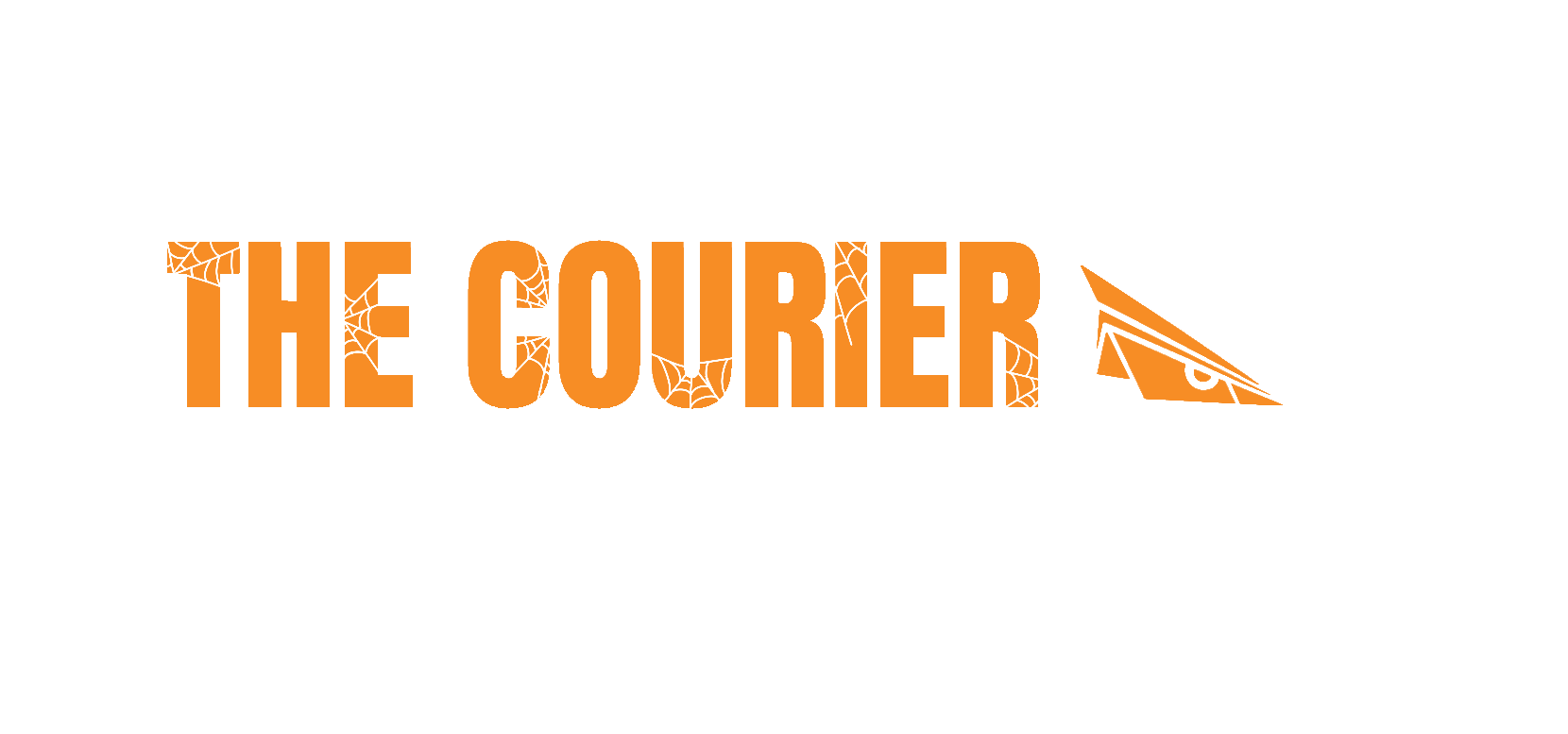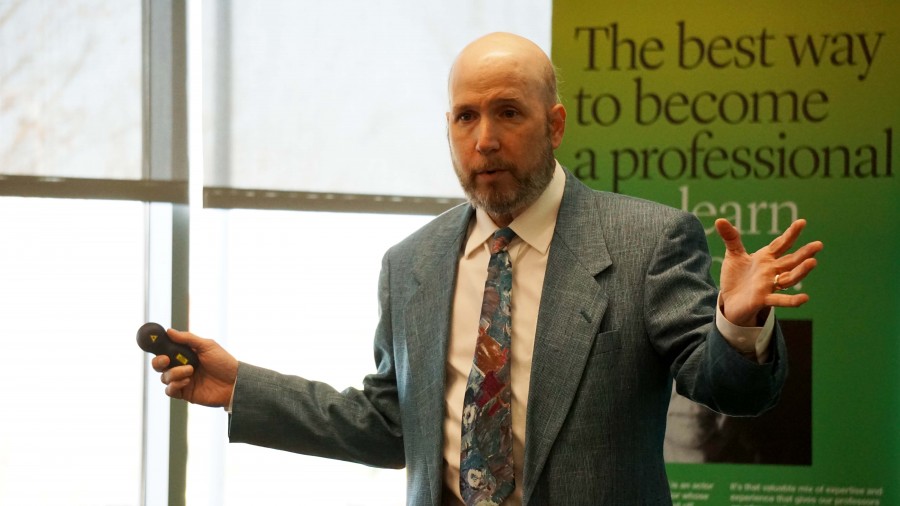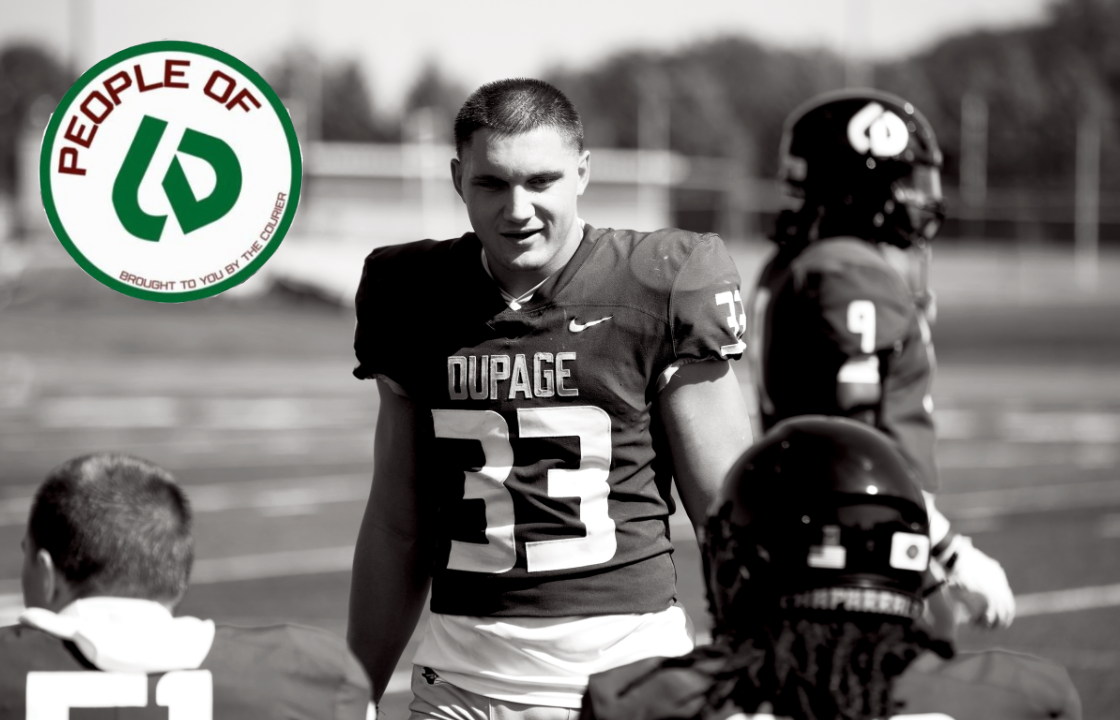Anxiety Awareness comes to the College of DuPage
Brian Katz talking at the Anxiety Awareness seminar at the College of DuPage on Nov. 10.
November 18, 2015
You close your eyes, straighten your back, relax your muscles and just focus on your breath and the different sensations that your body outputs. While focusing on your breath, you should count how long you intake, hold and exhale your breath and regulate a calming pattern to make it more effective. This pulls your focus away from your everyday stresses and forces you to focus on something else to calm yourself. Although this isn’t for everybody, mindful meditation is one way to help lower stress in this upbeat society.
With anxiety slowly encroaching the average college student, especially with finals season just around the corner, it is very important to understand stress, anxiety and how you can help yourself lower the amount of stress you encounter. In a survey conducted by the American Psychological Association in 2013, 41.6 percent of college students experience some form of anxiety. With the growing and more prevalent problem concerning college life, it is important to understand how to cope with the mental struggle.
The College of DuPage hosted an Anxiety Awareness Fair, where speakers came in to talk about mental illness and anxiety. One of the hosts was Brian Katz, a verified veteran’s counselor with vast knowledge on the neurology of anxiety.
By definition, anxiety is the uneasiness over the anticipation of less specific or predictable, real or imagined, threats. This is led by oversensitivity to threats, over production of the fight or flight chemical cortisol and underactive reasoning to provide a realistic assessment. Because of these different occurrences, anxiety impairs cognition.
Throughout the seminar, Katz talked about the specific science behind why we can feel ridden with anxiety, and some of the telltale signs as to if you are affected. Some of the behavioral signs he mentioned were using laughter or crying inappropriately as a coping mechanism, over controlling in situations and drinking in excess.
As for why we feel stressed out to the point of anxiety, he talked about how college students can feel anxiety ridden from all of the everyday stresses that we have to deal with, in addition to personal struggles in family life and at work.
A lot of these feelings have sprawled from the thalamus of the human brain, which is a part of the center of the brain that controls emotion and the five senses. As Katz was talking, he explained how when humans were evolving, their midbrain became impulsive to create both the “fight or flight” process and the emergence of fear, one of the most basic of human emotions. This was created to make humans be able to make faster decisions during the fight or flight complex, whether to fight or flee in order to survive.
To cope with this, one of the ways to overcome this fear is to find relaxation methods that would help you personally overcome your personal anxieties. One example of this that he showed was mindful meditation.
Long-term meditation has proven profound effects on your perspective on everyday life. One study put best by the Scientific American writer Tom Ireland while talking about the long term effects of mindfulness meditation, “MRI scans show that after an eight-week course of mindfulness practice, the brain’s “fight or flight” center, the amygdala, appears to shrink. This primal region of the brain, associated with fear and emotion, is involved in the initiation of the body’s response to stress.”
Although stress can be solved through mindful meditation, there are other ways to deal with anxiety: such as exercise, reading, and playing games whether athletic or not. If your anxiety is affecting your life to the point of stumping your progress or making you feel hopeless, there are resources at the college, like personal counseling, that can and will help you.
To learn more about counseling on campus, there is a mental health screening on the personal counseling page on the COD website to test and see how severe your ailments are affecting you. Nonetheless, if you personally feel as if you need help with anxiety, or any other mental ailment that might be affecting you, don’t be afraid to ask someone for help.




















